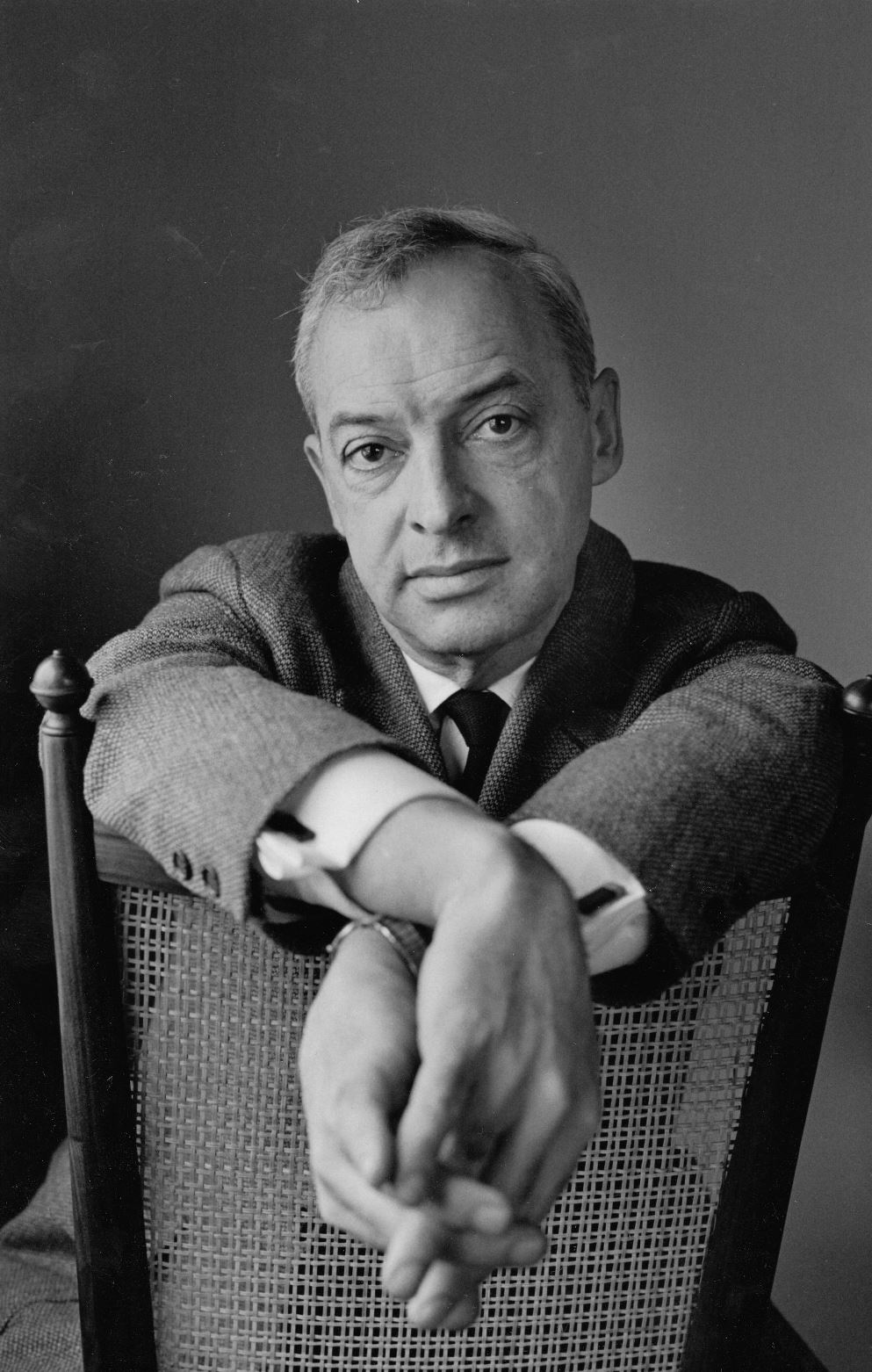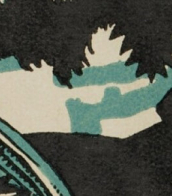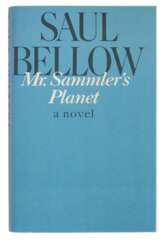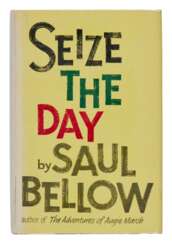Saul Bellow (1915 - 2005) — Auction price

Saul Bellow, real name Solomon Bellows, is a Jewish American writer and Pulitzer Prize and Nobel Prize winner.
Sol Bellow was born in Canada to Jewish immigrant parents from St. Petersburg, Russia, and grew up in Chicago. He attended the University of Chicago and Northwestern University, majoring in anthropology and sociology. Chicago was the setting for many of his novels of the 1970s and 1980s. In 1993, he took a position in the English Department at Boston University.
Bellow wrote his first book, The Dangling Man (1944), while serving in the Merchant Marine during World War II, and he published the novel The Victim in 1947. Saul Bellow is considered one of the most important Jewish American writers who wrote after World War II. Like his predecessors, he offers a Jewish perspective on the themes of alienation and otherness in the difficult postwar era of fragmentation, translating the Yiddish American experience into English.
Bellow has received the world's highest honors for his works. In 1954, his novel The Adventures of Augie March won the National Book Award for fiction. In 1975, the Pulitzer Prize for his novel The Humboldt Gift; the International Herzog Literary Award; and the Croix de Chevalier des Arts et Lettres, France's highest literary honor for non-citizens. In 1976, Bellow was awarded the Nobel Prize for Literature.


Saul Bellow, real name Solomon Bellows, is a Jewish American writer and Pulitzer Prize and Nobel Prize winner.
Sol Bellow was born in Canada to Jewish immigrant parents from St. Petersburg, Russia, and grew up in Chicago. He attended the University of Chicago and Northwestern University, majoring in anthropology and sociology. Chicago was the setting for many of his novels of the 1970s and 1980s. In 1993, he took a position in the English Department at Boston University.
Bellow wrote his first book, The Dangling Man (1944), while serving in the Merchant Marine during World War II, and he published the novel The Victim in 1947. Saul Bellow is considered one of the most important Jewish American writers who wrote after World War II. Like his predecessors, he offers a Jewish perspective on the themes of alienation and otherness in the difficult postwar era of fragmentation, translating the Yiddish American experience into English.
Bellow has received the world's highest honors for his works. In 1954, his novel The Adventures of Augie March won the National Book Award for fiction. In 1975, the Pulitzer Prize for his novel The Humboldt Gift; the International Herzog Literary Award; and the Croix de Chevalier des Arts et Lettres, France's highest literary honor for non-citizens. In 1976, Bellow was awarded the Nobel Prize for Literature.


Saul Bellow, real name Solomon Bellows, is a Jewish American writer and Pulitzer Prize and Nobel Prize winner.
Sol Bellow was born in Canada to Jewish immigrant parents from St. Petersburg, Russia, and grew up in Chicago. He attended the University of Chicago and Northwestern University, majoring in anthropology and sociology. Chicago was the setting for many of his novels of the 1970s and 1980s. In 1993, he took a position in the English Department at Boston University.
Bellow wrote his first book, The Dangling Man (1944), while serving in the Merchant Marine during World War II, and he published the novel The Victim in 1947. Saul Bellow is considered one of the most important Jewish American writers who wrote after World War II. Like his predecessors, he offers a Jewish perspective on the themes of alienation and otherness in the difficult postwar era of fragmentation, translating the Yiddish American experience into English.
Bellow has received the world's highest honors for his works. In 1954, his novel The Adventures of Augie March won the National Book Award for fiction. In 1975, the Pulitzer Prize for his novel The Humboldt Gift; the International Herzog Literary Award; and the Croix de Chevalier des Arts et Lettres, France's highest literary honor for non-citizens. In 1976, Bellow was awarded the Nobel Prize for Literature.






